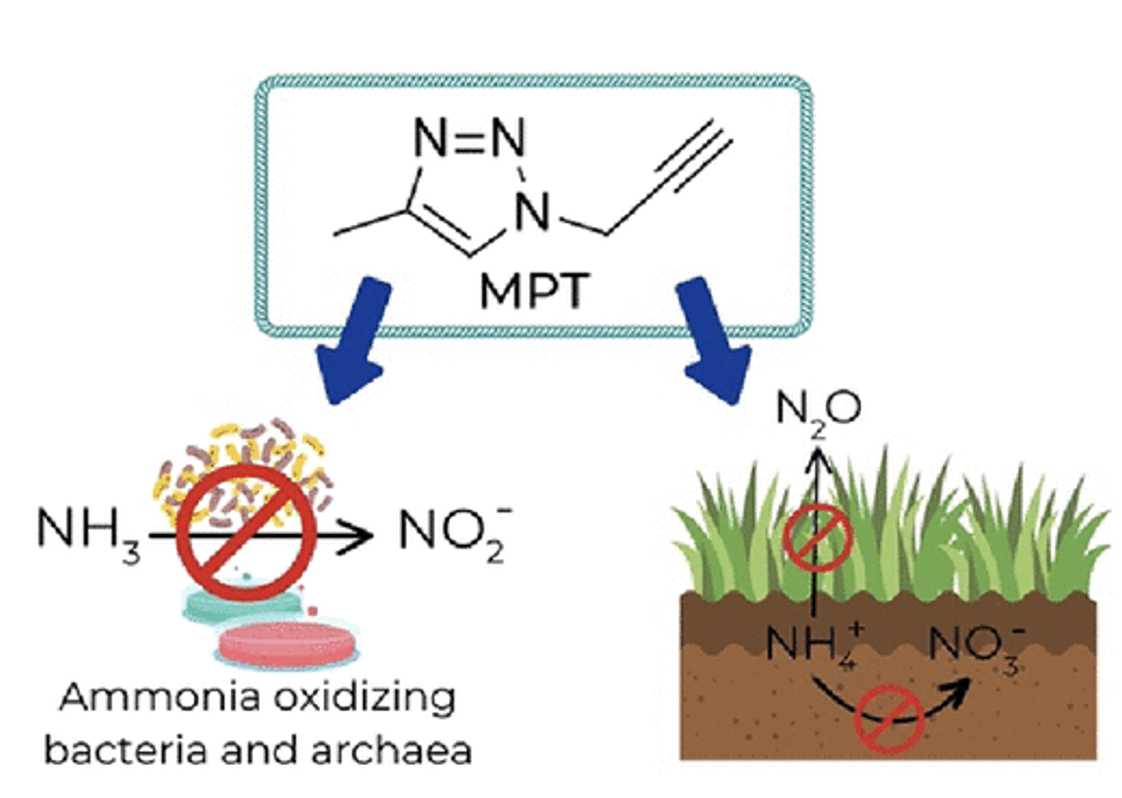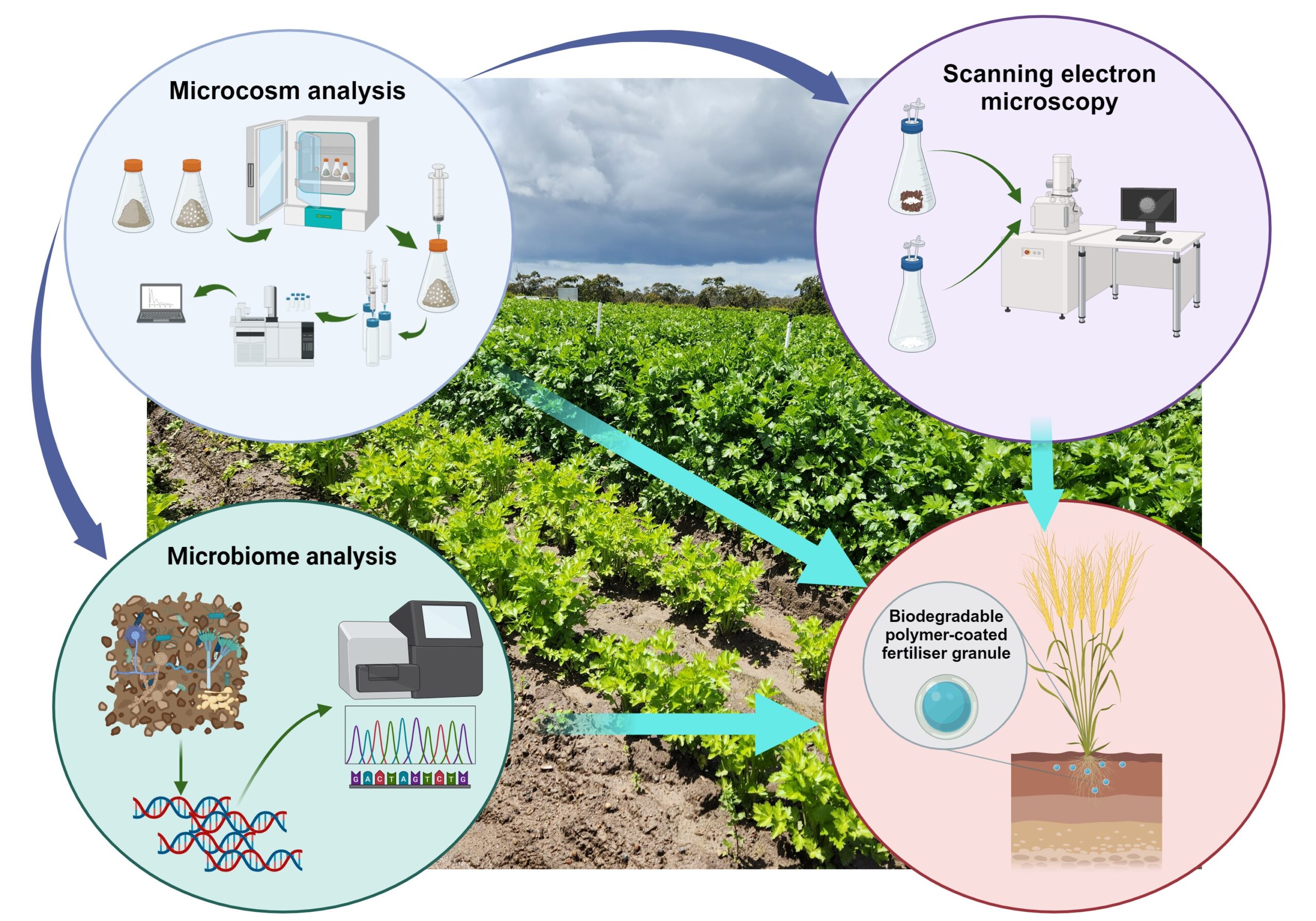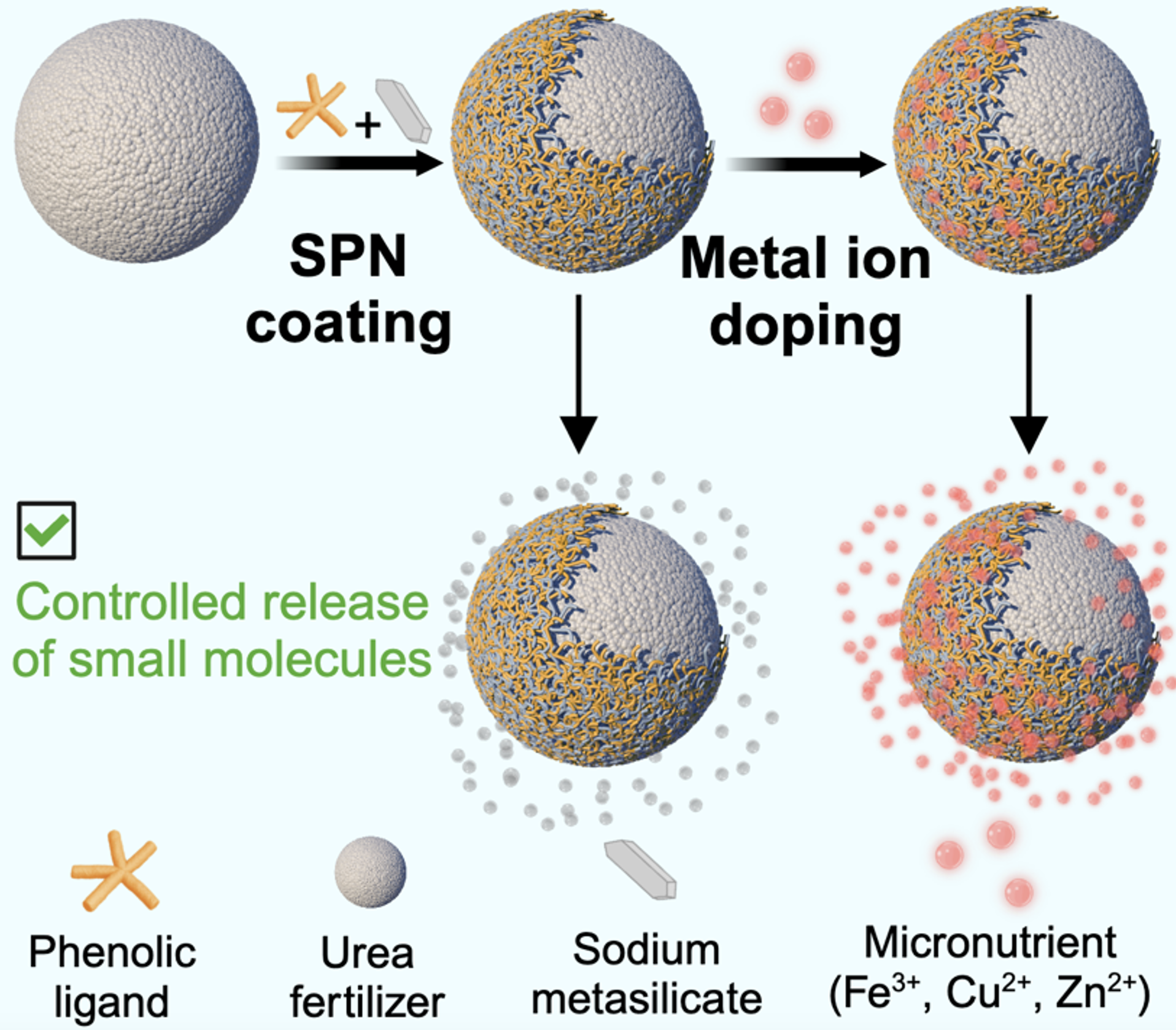The game-changer: a novel, highly efficient nitrification inhibitor – MPT, to reduce losses from nitrogen fertiliser urea.
Nitrogen fertilisation is a cornerstone of modern agriculture, but it comes with a hefty environmental price tag. Nitrogen fertilisation of crops generally utilises urea, which can be broken down to various byproducts, such as ammonia and nitrous gases, by microorganisms in the soil. A major aim is to slow this process down, so that plants can benefit from the fertiliser and there is less pollution to the environment, from the byproducts. The breakdown process produces the potent greenhouse gas nitrous oxide (N2O) and often results in groundwater pollution with nitrate (NO3–), which can result in river eutrophication, a process where the water can become enriched in nitrogen leading to algal blooms. Thus, decreasing nitrogen loss through increasing nitrogen use efficiency with nitrification inhibitors (NIs) to slow this process is crucial. These inhibitors – when added to fertilisers – slow down the microbial nitrification processes that transform ammonia into NO3–. However, current commercial nitrification inhibitors have struggled to perform consistently across different agroecosystems.
To combat this, researchers here at the ARC Hub for Smart Fertilisers developed and demonstrated the use of methyl-1-(prop-2-yn-1-yl)-1H-1,2,3-triazole (MPT) as a novel NI with outstanding inhibitory qualities, particularly in acidic soils, where current commercial NIs often fail to perform.
Through a range of bacterial studies and soil incubations, research led by Dr Sibel Yildirim (2024) finds that unlike traditional reversible inhibitors, MPT works as a mechanistic, irreversible inhibitor of ammonia monooxygenase (AMO), a key enzyme in the nitrification process.
The study shows the effective retention of ammonium (NH4+) and suppression of NO3– and N2O production over 21 days in acidic and neutral agricultural soils, outperforming current available nitrification inhibitors on the market.
Another standout benefit of MPT is its ease of synthesis in the laboratory. It can be produced in high yields through a simple reaction using readily available starting materials, which opens-up exciting commercialization prospects. MPT represents a new NI with great potential for broad application in various agricultural settings.
To read more on this research, click here.
To keep up to date on the Hub’s research, click here to sign up to the newsletter.




